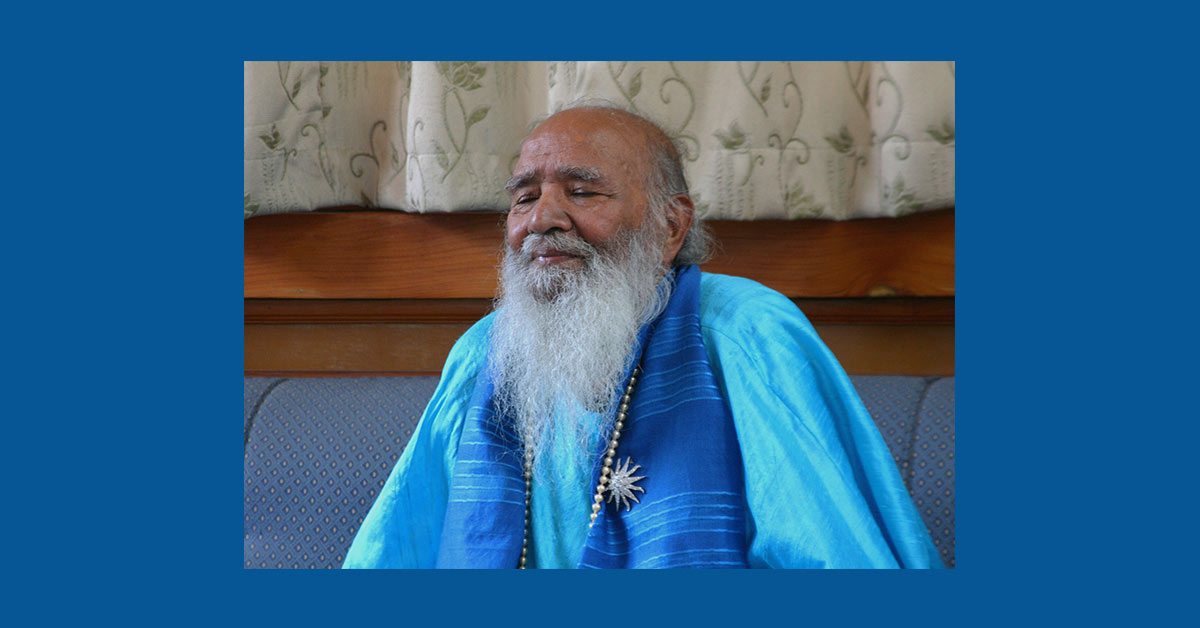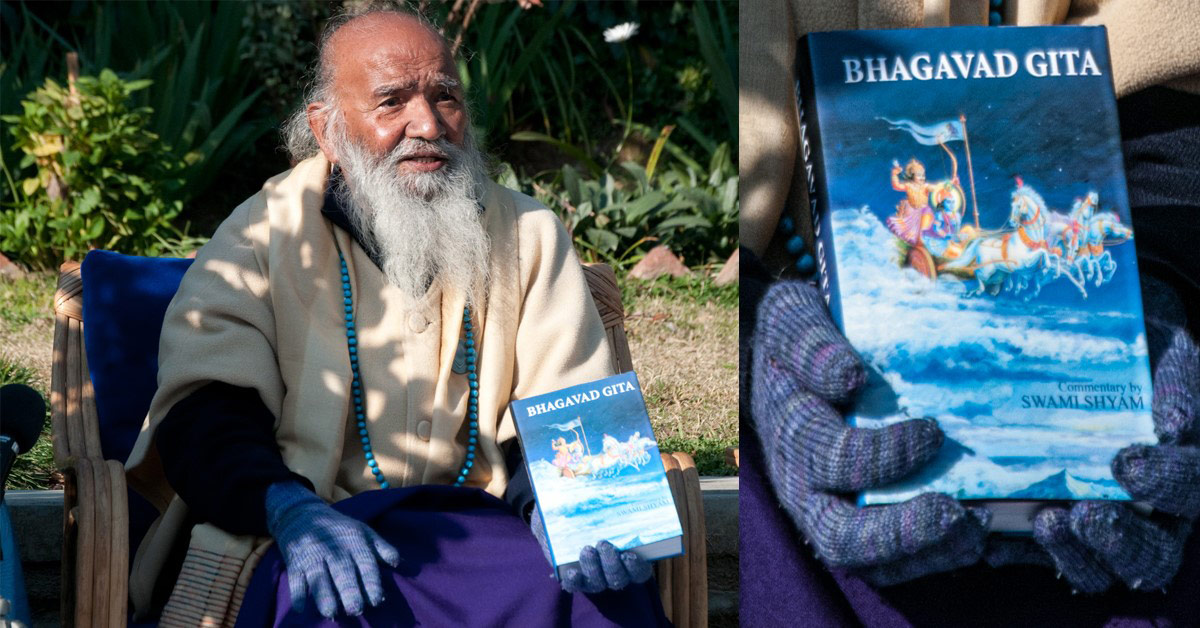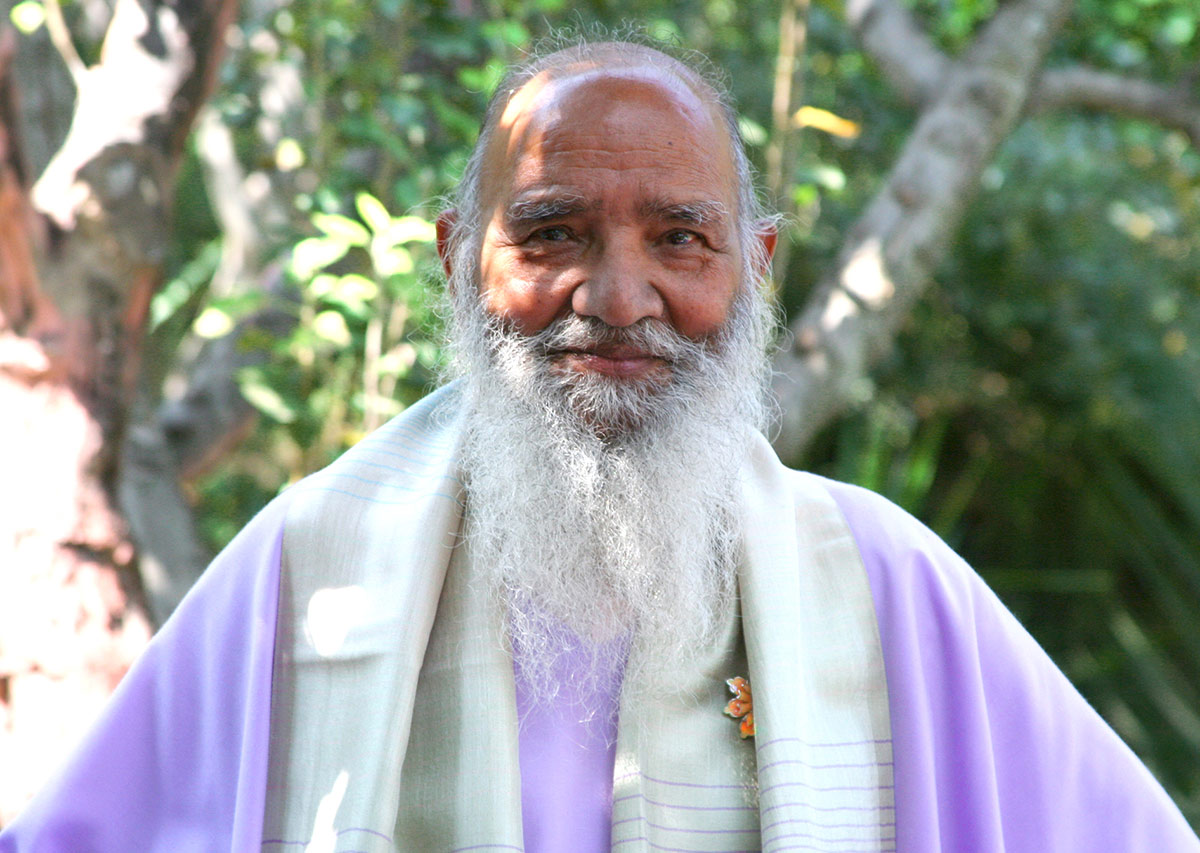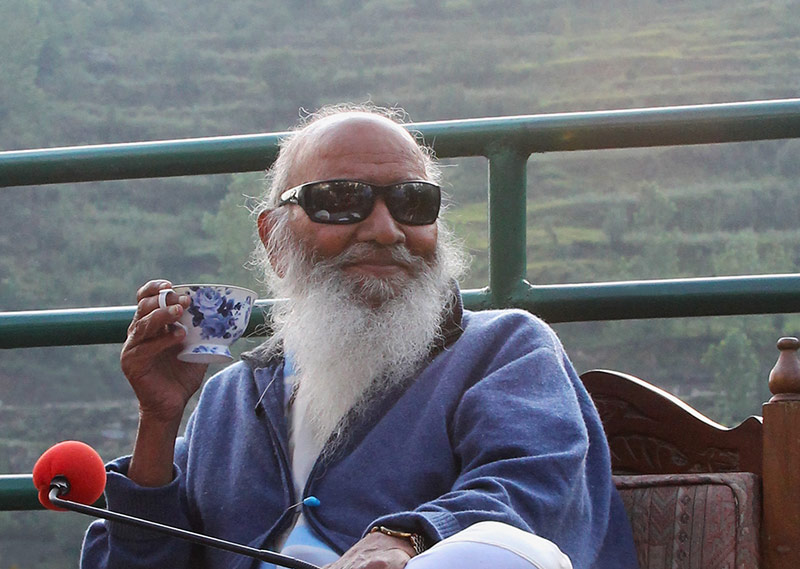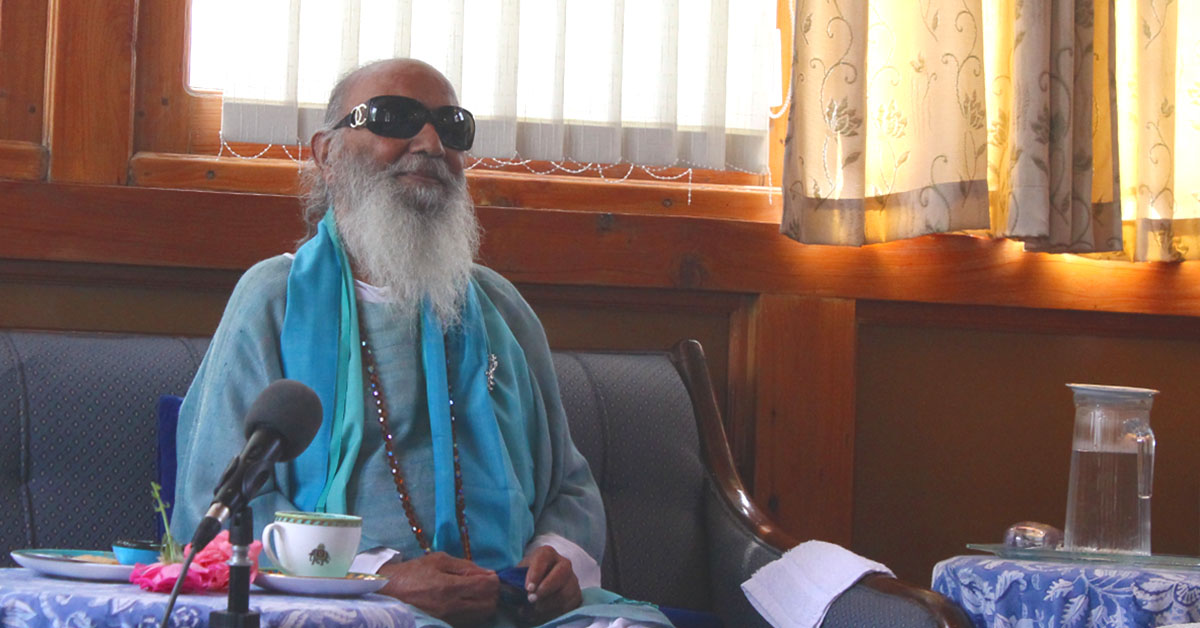Swamiji: … We are here on earth and became human beings. What wrong is there that we are human beings, with senses, minds, and organs? What is wrong is that we will die! That is the only wrong. [Laughter] Otherwise, a human being is most wonderful. If he is most wonderful, then what is his purpose? This has not been recorded in books written by our elders, or persons who have the sense of otherness. The sense of a human being is the sense of otherness, or that there are chaytan (sentience) and jar (insentience), an aware mind and not aware feet and teeth. Why is it that a human being believes he is aware because of the mind, intellect and ego-sense, but his ribs, shoulders, stomach, feet, and hands do not have awareness?
Unborn Is Your Pure Intellect
